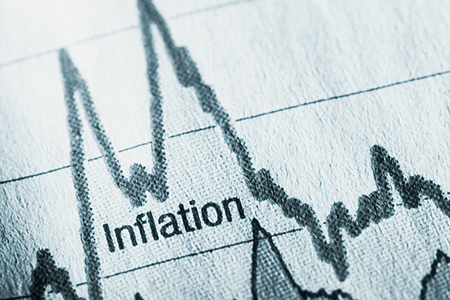Indicators from all sides affect the housing market. Increasing inflation, in fact, can drive up mortgage rates—but at what pace will it prove harmful?
A recent Outlook from Freddie Mac projects three outcomes for inflation—higher, lower, or stable—and each outcome’s effect on housing.
A case of higher inflation would be detrimental to the housing market, according to the Outlook, with both home sales and mortgage originations negatively impacted due to a swift rise in interest rates.
A case of lower inflation, however, would be beneficial, especially for homebuyers on the sidelines due to too-high home prices.
A case of stable inflation—on par with economists’ expectations—would hinder home sales initially, but ultimately prove favorable.
“Which course inflation takes over the next year will have important implications for housing and mortgage markets,” says Sean Becketti, chief economist at Freddie Mac. “On balance, the risks to higher inflation outweigh lower inflation, but in our estimation, most of the reflationary factors have already been baked into current interest rates, and inflation is likely to increase only modestly over the next two years. With the housing market on the verge of the spring home-buying season, this is good news in an environment where historically low mortgage rates will help offset the pace of house price growth and lack of for-sale inventory in many markets.”
Source: Freddie Mac
For the latest real estate news and trends, bookmark RISMedia.com.











